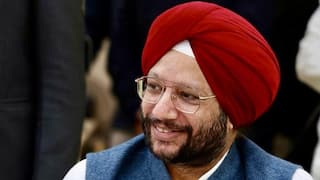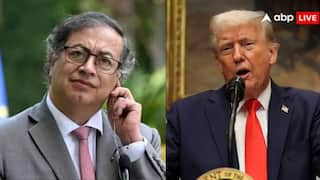Explorer
Article 370 Abrogation: Restrictions In Jammu & Kashmir To Ease In Phased Manner
The government on Tuesday announced that it will ease restrictions on the movement of people in the Valley in a phased manner while claiming that normalcy has been restored in the Jammu division.

The administration also carried out a full dress rehearsal for the Independence Day functions. (Getty Image)
Srinagar: After the shutdown of communication services and removal of Section 144 imposed in various regions of Jammu and Kashmir post the abrogation of Article 370, the government on Tuesday announced that it will ease restrictions on the movement of people in the Valley in a phased manner while claiming that normalcy has been restored in the Jammu division. According to a report by news agency IANS, government spokesperson Rohit Kansal said here that the decision to ease restrictions was taken after an assessment by local authorities of the situation prevailing in various parts of the Valley. Kansal, who was accompanied by Commissioner Secretary Information MK Dwivedi and Director, Information and Public Relations, Syed Sehrish Asgar, also announced that there is no shortage of medicines, including life saving drugs, in any part of the Valley. The spokesperson further said that medical services are being provided to the people without any hindrance and claimed that 13,500 patients have been treated in the out patients departments (OPDs) of the government hospitals. The officials claimed that 1,400 new admissions have also been done while 600 patients have undergone medical procedures. The traffic flow on the national highway is moving smoothly while air operations are also normal, the officials said. The administration also carried out a full dress rehearsal for the Independence Day functions to be held in every district on Thursday. Even the Supreme Court observed that the Centre should be given a "reasonable time" to bring normalcy in Jammu and Kashmir which cannot be done "overnight" in view of the sensitive situation. The apex court at the same time refused to pass any immediate order to the Centre to lift restrictions imposed on people's movement and telecom links after revocation of provisions of Article 370 taking away the special status of the border state and bifurcating it into two union territories--Jammu and Kashmir and Ladakh. In Delhi, a a top government official said the restrictions were a trade-off between inconvenience and loss of life and any decision on lifting them will be taken by the local administration. The Jammu and Kashmir administration also moved to hold a three-day global investors summit in Srinagar from October 12, in a move to woo investors. The summit will provide an opportunity to showcase strengths and potential of Jammu and Kashmir, Principal Secretary Industries Naveen Choudhary told reporters in Jammu. Political leaders like former chief ministers Omar Abdullah and Mehbooba Mufti, who were arrested as a "precautionary measure", will be released by the Jammu and Kashmir administration only after assessing the ground situation, said a Delhi-based official. The official said this was not the first time restrictions were imposed in Jammu and Kashmir and a similar situation existed in 2016, following the killing of Hizbul Mujahideen terrorist Burhan Wani. The separatist amalgam Hurriyat Conference called 'hartals' for weeks. Following the reorganisation of Jammu and Kashmir into two union territories, the Election Commission (EC) held informal discussions in Delhi on the latest developments. The poll panel is also learnt to have discussed the proposed delimitation exercise in Jammu and Kashmir, where Assembly elections are due. EC sources said the Ministry of Home Affairs (MHA) is yet to formally write to the poll panel on the issue of reorganisation of the state and the delimitation exercise as per the Jammu and Kashmir Reorganisation Act.
Related Video
Uttarakhand News: Winter Chill Grips North India; Kedarnath Dham Covered in Snow
Follow Breaking News on ABP Live for more latest stories and trending topics. Watch breaking news and top headlines online on ABP News LIVE TV
Top Headlines
Cities
World
India
Jammu and Kashmir

Justin M Bharucha
Opinion




































